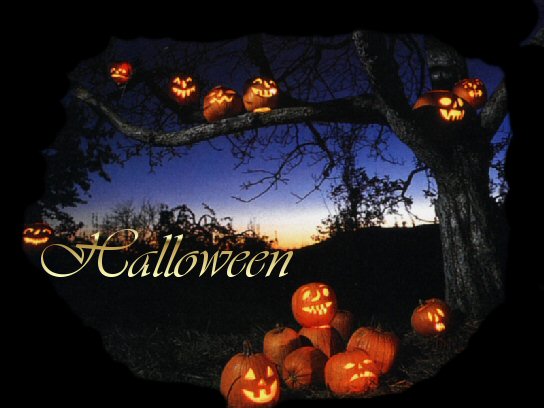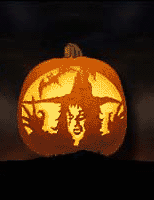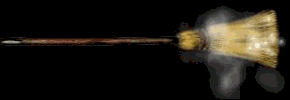halloween

 alloween - All Hallowed Evening
alloween - All Hallowed Evening
Lange noch bevor im 16. Jahrhundert die Eroberung des amerikanischen
Kontinents im Namen der Kirche mit barbarischer Gewalt und unter
Ausrottung bodenständigen religiösen Brauchtums vollzogen wurde,
befleissigten sich die geistlichen Würdenträger schlauerer Methoden, um
die Christianisierung voranzutreiben:
Da es nahezu unmöglich war, die Menschen, die zwar grundsätzlich geneigt
waren, den neuen Glauben (mehr oder weniger) freiwillig anzunehmen, auch
davon zu überzeugen, von ihren alten heidnischen Bräuchen zu lassen,
wurden alle wesentlichen Feste des Jahres ganz einfach auf christlich
umgepolt
Der Vorläufer von Halloween wurde auf Irland schon vor 5000 Jahren
gefeiert und zählt somit zu den ältesten Festtagen der Menschheit.
Tatsächlich markierte der (heutige) 31. Oktober einen starken
Einschnitt: Das Ende des Jahres
Für mich persönlich ein ganz besonderer Tag, den ich auch einem ganz bestimmten
Menschen widme..


Samhain (ausgesprochen etwa wie 'Sa-un' oder Sa-u-in ) soll sich in
einer Deutung von 'sam-fuin' ableiten und das heisst Sommers-Ende.
Das keltische Jahr beschränkte sich auf die Jahreszeiten Sommer und
Winter und zu Samhain endete das alte und begann das neue Jahr. Deshalb
kommt Samhain auch mehr Bedeutung zu, als dem Sommeranfang (Beltane, das
nächstwichtige Fest).
Zum Zeitpunkt Samhain sollte alles abgeschlossen sein, was es an
Aktivitäten in der Landwirtschaft gegeben hat. Und es war auch der
Abend, an dem die häusliche Gemeinschaft der Großfamilie wieder komplett
zusammensitzen konnte.
Nicht zuletzt dieses Beisammensein war Anstoß für eine Feier und für
zahlreiches Zeremoniell.


![]()

![]()
Halloween is one of the oldest holidays with origins going back
thousands of years. The holiday we know as Halloween has had many
influences from many cultures over the centuries. From the Roman's
Pomona Day, to the Celtic festival of Samhain, to the Christian holidays
of All Saints and All Souls Days.
Hundreds of years ago in what is now Great Britain and Northern France,
lived the Celts. The Celts worshipped nature and had many gods, with the
sun god as their favorite. It was "he" who commanded their work and
their rest times, and who made the earth beautiful and the crops grow.
The Celts celebrated their New Year on November 1st. It was celebrated
every year with a festival and marked the end of the "season of the sun"
and the beginning of "the season of darkness and cold."
On October 31st after the crops were all harvested and stored for the
long winter the cooking fires in the homes would be extinguished. The
Druids, the Celtic priests, would meet in the hilltop in the dark oak
forest (oak trees were considered sacred). The Druids would light new
fires and offer sacrifices of crops and animals. As they danced around
the the fires, the season of the sun passed and the season of darkness
would begin.
When the morning arrived the Druids would give an ember from their fires
to each family who would then take them home to start new cooking fires.
These fires would keep the homes warm and free from evil spirits.
The November 1st festival was called Samhain (pronounced "sow-en"). The
festival would last for 3 days. Many people would parade in costumes
made from the skins and heads of their animals. This festival would
become the first Halloween.
During the first century the Romans invaded Britain. They brought with
them many of their festivals and customs. One of these was the festival
know as Pomona Day, named for their goddess of fruits and gardens. It
was also celebrated around the 1st of November. After hundreds of years
of Roman rule the customs of the Celtic's Samhain festival and the Roman
Pomona Day mixed becoming 1 major fall holiday.
The next influence came with the spread of the new Christian religion
throughout Europe and Britain. In the year 835 AD the Roman Catholic
Church would make November 1st a church holiday to honor all the saints.
This day was called All Saint's Day, or Hallowmas, or All Hallows. Years
later the Church would make November 2nd a holy day. It was called All
Souls Day and was to honor the dead. It was celebrated with big
bonfires, parades, and people dressing up as saints, angels and devils.
But the spread of Christianity did not make people forget their early
customs. On the eve of All Hallows, Oct. 31, people continued to
celebrate the festivals of Samhain and Pomona Day. Over the years the
customs from all these holidays mixed. October 31st became known as All
Hallow Even, eventually All Hallow's Eve, Hallowe'en, and then - Halloween.
The Halloween we celebrate today includes all of these influences,
Pomona Day's apples, nuts, and harvest, the Festival of Samhain's black
cats, magic, evil spirits and death, and the ghosts, skeletons and
skulls from All Saint's Day and All Soul's Day.




Verantwortlich für den Inhalt dieser Seite ist ausschließlich der
Autor dieser Homepage, kontaktierbar über dieses Formular!

